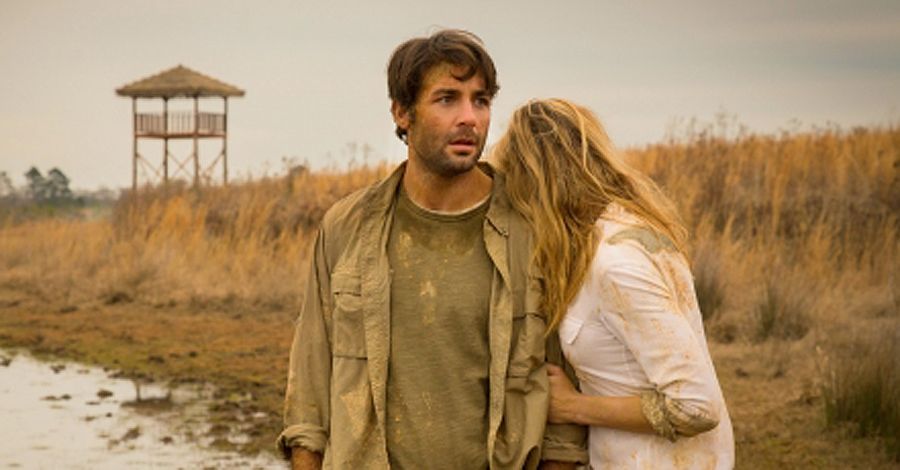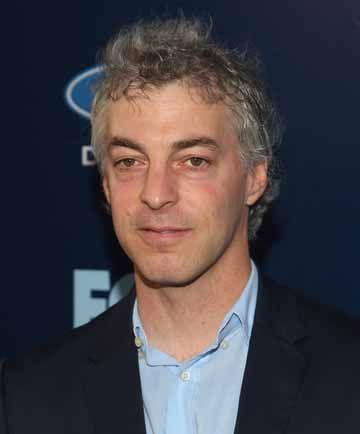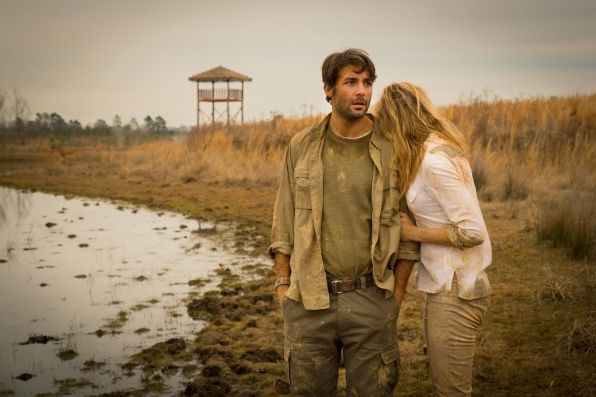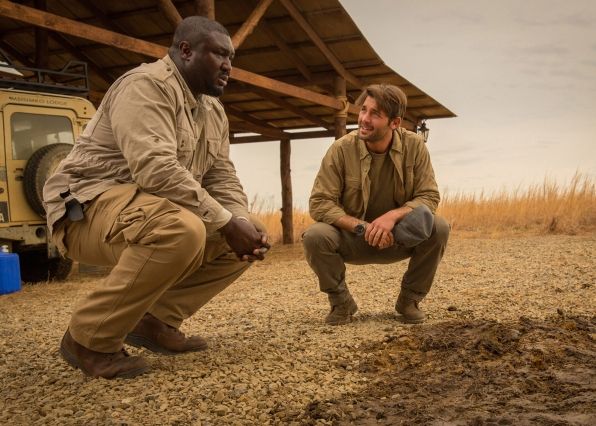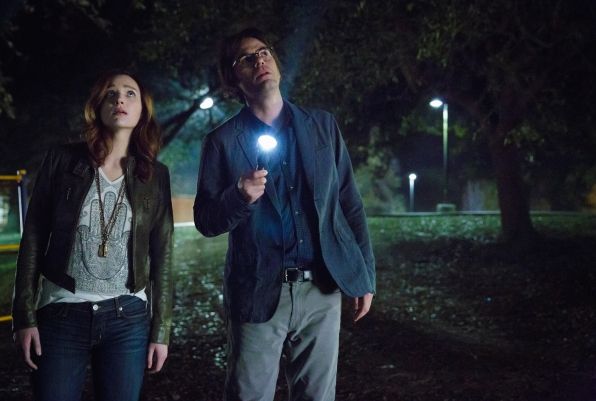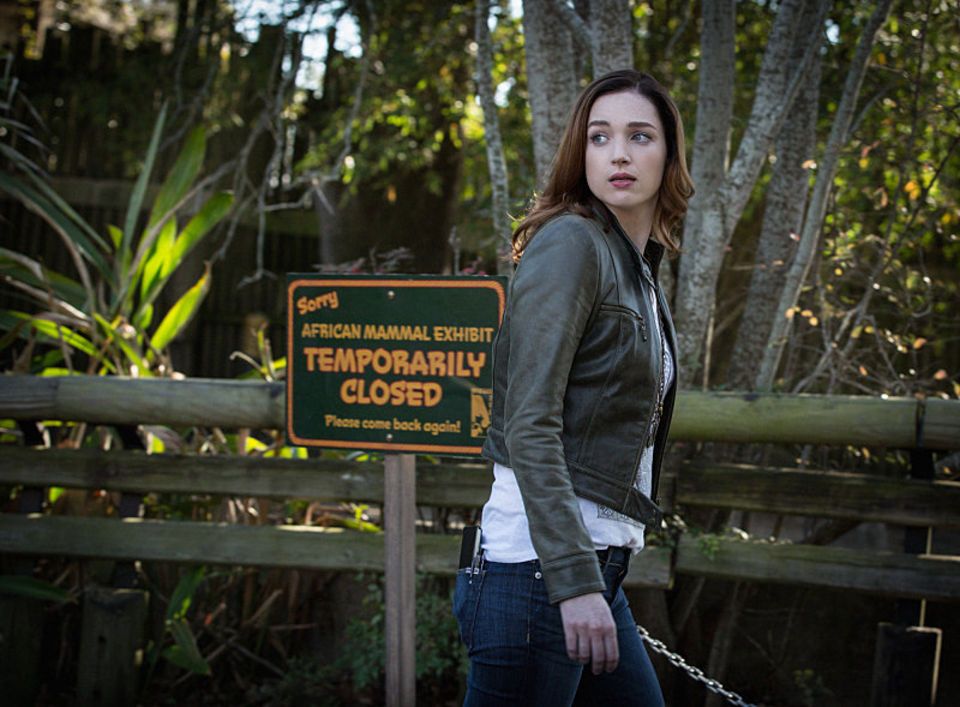It's all-out war between man and beast in the CBS thriller "Zoo."
Based on the James Patterson novel of the same name, the 13-episode miniseries finds animals suddenly attacking humans all over the world. Has Mother Nature gone wild, or is something more sinister responsible? A small group of specialists and scientists bands together to discover the truth, before mankind becomes extinct.
Ahead of tonight's premiere, Executive Producer Jeff Pinkner spoke with SPINOFF about adapting Patterson's novel, the benefit of using real animals and the importance of answering questions. In addition, Pinkner previewed his upcoming projects, including "The Dark Tower" and Paramount Pictures' expanded "Transformers" universe, and addressed the new direction for the Spider-Man franchise.
Spinoff Online: What did you make of James Patterson's novel when you read it?
Jeff Pinkner: So, I have partners on this: Josh Appelbaum, Andre Nemec and Scott Rosenberg. Josh, Andre and I worked together on "Alias." I worked with all of those guys on "October Road" and then they went on to do "Life on Mars" while I was doing "Fringe." We came together to do this. CBS asked us to read the book. We were all in separate places, and in a moment of synchronicity, we all stopped around Page 35, called each other and said, "There's a great idea here."
The idea is essentially Alfred Hitchcock's "The Birds," but across the whole animal spectrum. All of the animals have finally gotten fed up, or so it seems, and turned against humanity. By that time, we were hooked. We instantly started imagining the possibilities for that show. The book exists. It isn't going anywhere, but we wanted to tell a different story for a whole bunch of reasons.
Literary material never perfectly translates into other mediums. What were some of your thoughts on how to adapt "Zoo" over 13 episodes?
One, TV and novels are different and do different things well. What the book does really well, TV couldn't necessarily do, and vice versa. Both on the character-development level and the plot narrative, for anybody who read the book, we didn't want it to roll out in the same way. We didn't want all those mysteries spoiled just by virtue of having read the book. They both start from the same premise. The major character and some of the other characters from the book have been reappropriated for the TV show and then we reinvented others. Then, we were off to the races.
Patterson is credited as one of the producers. How hands-on was he with the development and plotting of the series?
He has been a very benevolent godfather. He reads everything. He watches everything. He sends us lovely emailed notes. They are always great ideas, some of which we are able to execute and others we aren't. He's been wildly supportive and I think a big fan. He's absolutely involved in the DNA of the show, but he's not writing on the show.
"Zoo" kicks off with two escaped lions terrorizing Los Angeles. What are some of the signs this is not an isolated event?
Simultaneously, it's happening in Africa -- the behavior of some lions is changing in Africa. The show travels around the globe, so, by the second episode, there's evidence of other strange animal behavior emerging within a narrow period of time all around the world. The lions in L.A. and the lions in Africa are the very first incident our lead characters are exposed to, but they are not the first incident that's happened.
Who is Jackson Oz (James Wolk), and what forces him to step up during this crisis?
Jackson's father Robert, played by Ken Olin, began as a professor at Harvard. Years ago, he started to see evidence that animal behavior was changing. He began to predict the consequences of the behaviors he was seeing. The world treated him like he was a crazy person. Imagine if someone a 150 years ago started to predict global warming. As a by-product of the way the world was treating him and not taking him seriously, he started to drink and display crazy behavior.
Around the same time, Jackson's mother was a doctor and was offered an opportunity to do a sort of Doctors Without Borders program in Africa. Jackson said, "Mom, this is our chance to get away from dad." Jackson was 18 at the time. Since then, he's been living in Africa. He went to work on, and eventually bought, his own safari camp. That's where we meet him.
Over the course of the pilot, Jackson, who had been living a happy life with his partner Abraham Kenyatta, played by Nonso Anozie, witnesses behavior among the lions that specifically indicates that maybe his dad was right. What sets Jackson on his journey is that he has specialized knowledge. As much as he'd like to ignore it, he just feels the calling to do something about it.
The threat can't simply amount to "animal mauling of the week." How are the stakes raised over the course of the season?
You are correct. It can't be the animal mauling of the week. We're not interested in doing that show. There are human antagonists of all different varieties, both individual and corporate. I'm loath to answer that question too specifically because I think part of the fun of the show is going on that journey that you're asking me to talk about. I will say you are absolutely right. "Zoo" is not a mauling of the week. That would get very tired, very quickly.
Is everyone looking for a scientific explanation or will there be people who believe this is an act of God?
Sure, there are going to be people that believe that. But, there are also people who believe science is an act of God. One of the lessons we learned from "Fringe," "Alias" and "Lost" that we are very much putting into play with this show is that our characters are hopefully going to ask the same smart questions that the audience is asking and those answers will lead to new questions. Whether or not this is scientific, just a natural mutation, viral, bacterial or purposeful by some human agent or agency, all of these things will be explored. I can tell you that there is absolutely an answer and we're not going to be coy about it. In fact, discovering the answer leads to more drama and high stakes.
On such a heavily serialized show, why was it important to deliver answers on a regular basis?
Audiences can only tolerate so much frustration. I don't think it's fair. This isn't a murder mystery, this isn't a whodunit. Even the best whodunits are really "whydunits" or "howdunits." To have 13 hours that depend on one answer is never going to be that satisfying because the audience will have guessed every potential answer by the time you get there.
It's really the character drama that carries you through. The answer must feel really satisfying. Unless you're doing "The Sixth Sense," which is such a twist and makes you look at everything in a new light, we weren't interested in making a show where the whole thing hinges on a mystery of "Why is this happening?" We were more interested in figuring out why it is happening relatively early on, but then dealing with the bigger problem of, "OK, well, how do we stop it?"
Why did you ultimately go the practical route and use real animals as opposed to digitally creating them?
It's such a loaded question. Part of it is practical. There are challenges to both. Real animals are obviously real and unpredictable no matter how well trained they are. They are animals and are going to do what they want to do. We literally had instances where you call "Action" and the bear has fallen asleep between takes. There's nothing you can do about that.
On the flip side, CG creatures are by definition more controllable because you are creating them. At the same time, they are expensive and wildly time-consuming. Having real animals, it is impossible to recreate the level of authenticity in actors' performances that you get when there are real animals on the set. There's just a level of respect and a level of fear in the eyes when you are acting with a 800-pound bear. Even though it's perfectly safe and controlled, you'll never get the same level of acting if it's, "Pretend that there's a bear over there and we'll put it in later."
These limited series are becoming more and more popular in mainstream television. Why do you believe that format works?
I like that at the end of 13 episodes we can look at each other in the writers' room and go, "OK, we're done." The truth is there are pluses and minuses to both. In a 22-episode season, you can go down a few more alleys and everything doesn't have to stay on the main storytelling axis. When you have 13, they sort of have to by demand. You don't have that much room to play and explore. It can be good that every episode is necessary, too.
Besides "Zoo," you have quite a few projects on your plate. As part of the writing collective for "Transformers 5," are you approaching this as a reboot? How are you building on the previous chapter?
We have been talking about a series of movies all in the Transformers' mythology, some of which are in the continuity of the Michael Bay movies and some of which are not.
This isn't as simple as it sounds, but what makes a good "Transformers" story?
That is a damn good question. As soon as I have an answer, I'll call you back. We're right in the middle of it right now. That's exactly the question we're asking ourselves.
"The Dark Tower" is something else you have in development. Why has it taken so long to get this off the ground?
I can't speak to that specifically. I can tell you that based on my participation that there are a series of books which are spectacular. The key has been to try to find which part of the story do you tell first and how do you tell it. I think we've found a really interesting way in. I think we've found a way to remain incredibly truthful to the world Stephen King created and respectful of the fans of those books. Part of the challenge is telling a story that will be satisfying and respectful to the people wildly familiar with that world and also welcoming to people who aren't familiar with the books at all.
It's a fairly dense series. How daunting has it been trying to whittle it down?
Very. It's been a joy. It's been incredibly fun. I feel massively fortunate to be able to play in that world. I know Stephen would say the same.
After co-writing "The Amazing Spider-Man 2," you were supposed to also pen the next sequel. Are you still attached to the franchise?
Alex [Kurtzman] and I are not involved in the Marvel world, but should it come back around, we'd love to be involved in future iterations. At this point, not at all.
What was your reaction to Andrew Garfield being recast? Do you feel Tom Holland was a good choice as a successor?
I don't think it's any kind of referendum on Andrew or the movies that came before. I think they are looking at the story they want to tell, which requires a younger Spider-Man. Tom Holland is spectacular, and a great choice, but I don't think it's a reflection on Andrew. He's a magnificent person and I loved his take on the character.
What other franchises, reboots or remakes would you like to take a crack at?
I love the “Star Wars” universe. Who doesn't? There are so many stories I love and stories I'd love to – I don't know if "reboot" is the right word – but be allowed to play in. "Transformers" has been a joy. I'm working on "The Creature from the Black Lagoon." There are monsters I love. There are a lot of stories I want to tell.
“Zoo” premieres tonight at 9 ET/PT on CBS.

